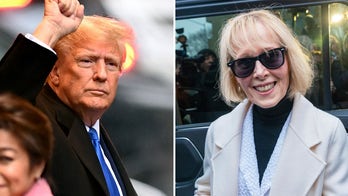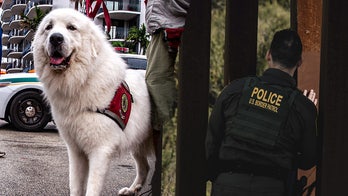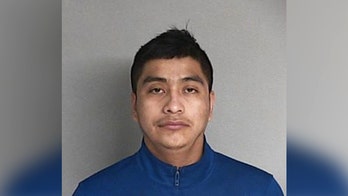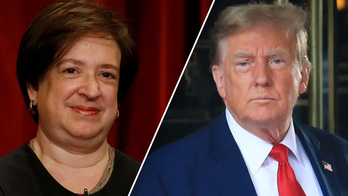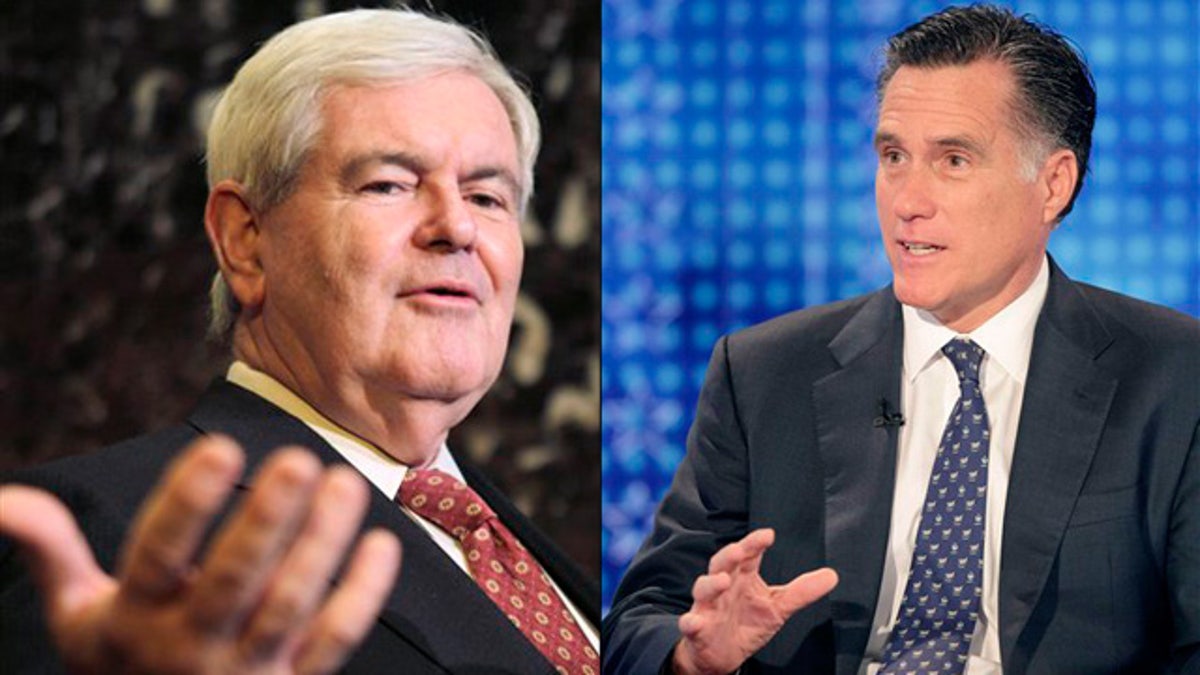
Shown here are former House Speaker Newt Gingrich, left, and former Massachusetts Gov. Mitt Romney. (AP)
CHARLESTON, S.C. – Newt Gingrich acknowledged Saturday that his rival's attacks have taken their toll on his presidential campaign as he's zoomed to be Mitt Romney's chief challenger. Romney predicted that conservative voters will reject Gingrich as they learn more about the former House speaker's lengthy Washington record.
Gingrich cited "the extraordinary negativity of the campaign" in explaining why he was inclined to hold teleconferences with supporters every few days so people can discuss ideas and his campaign can "encourage them to raise any of these things that you get in the mail that are junk and dishonest."
"I'll be glad to personally answer, so you're hearing it from my very own lips," he said Saturday from Washington in such a forum with Iowa backers. "We don't have our advertising versus their advertising, but you get to ask me directly."
Romney campaigned in early voting South Carolina, where tea party activists have given Gingrich a strong lead in polls. Romney told reporters that many voters now are just beginning to pay attention to the race and will turn on Gingrich after they learn about his time in Washington and his role with mortgage company Freddie Mac, a quasi-government agency.
Gingrich's consulting firm collected $1.6 million from the company.
"I think as tea partiers concentrate on that, for instance, they'll say, `Wow, this really isn't the guy that would represent our views,"' Romney said after a town hall meeting with South Carolina Rep. Tim Scott. "Many tea party folks, I believe, are going to find me to be the ideal candidate."
Gingrich said the attacks on his record have been brutal, but he insisted they are exaggerated.
"I just want to set the record straight," Gingrich told Iowa supporters. "We were paid annually for six years, so the numbers you see are six years of work. Most of that money went to pay overhead -- for staff, for other things. It didn't go directly to me. It went to the company that provided consulting advice."
Romney also went after Gingrich's repeated insistence that he never lobbied Congress after he stepped down as speaker.
"I'm going to let the lawyers decide what is and what is not lobbying, but when it walks like a duck and quacks like a duck, typically it's a duck," Romney said.
Other candidates focused their campaigns on Iowa, which holds its leadoff caucuses Jan. 3.
Minnesota Rep. Michele Bachmann and Texas Gov. Rick Perry were on bus tours through rural Iowa. Former Pennsylvania Sen. Rick Santorum stuck to a plan that has won him the honor of spending the most time in the state, yet has not yet translated into support in polls.
Texas Rep. Ron Paul, who has a loyal following among his party's libertarian wing, worked to build momentum and organization in Iowa, although he did not have public events scheduled until midweek.
With Iowans incredibly undecided, most candidates are redoubling efforts before voters largely tune out the race for the week between Christmas and New Year.
Gingrich, who faces the toughest criticism on the airwaves, had a conference call with reporters and planned to appear on CBS' "Face the Nation" on Sunday.
As the Iowa vote neared, his decision to take the weekend off from campaigning raised eyebrows given his rivals' busy schedules.
Gingrich has prided himself on a nontraditional campaign, but his advantages in the polls could shift if the only exposure to Gingrich comes through rivals' negative ads.
Paul last week released an ad accusing Gingrich of "serial hypocrisy" and Bachmann opened her bus tour on Friday suggesting that he was arrogant during this past week's final debate before the caucuses.
Romney, a former Massachusetts governor who has kept Iowa at arm's length after investing heavily here four years ago only to come up short, planned town hall-style meetings in Charleston and Myrtle Beach. Even so, his advisers note they have kept in touch with supporters of his 2008 campaign that came in second place in Iowa.
Former Utah Gov. Jon Huntsman, who early on decided against competing in Iowa, planned a town hall-style meeting in New Hampshire. Huntsman, who also served as President Barack Obama's ambassador to China, has kept his focus on New Hampshire, where independent voters are the largest bloc and can vote in either party's primary.

